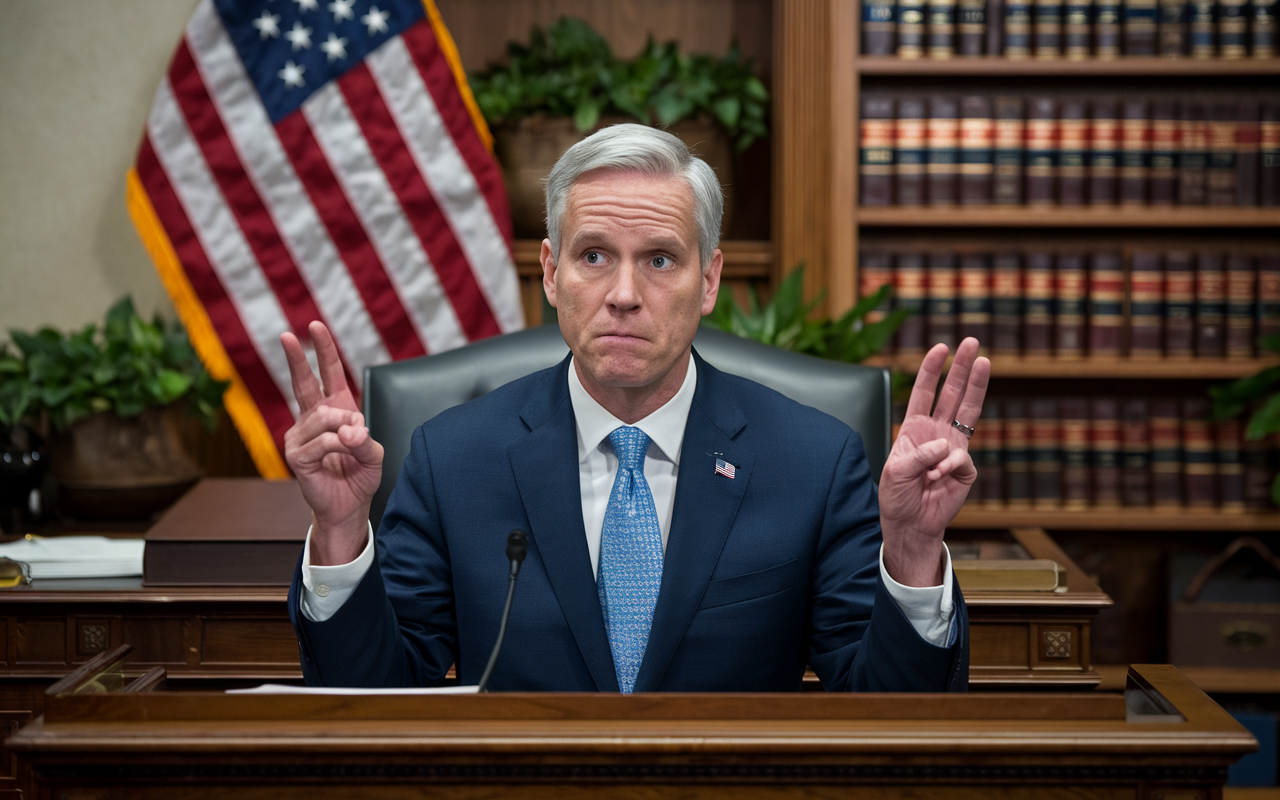The Blame Game: A GOP Senator’s Controversial Take on Health Issues 🙄💔
In a recent media appearance, Senator Roger Marshall, a Republican from Kansas, stirred up quite a conversation when he suggested that Americans are primarily responsible for their own health problems. 🚑🩺 He stated, “Look, about 70 percent of your health outcomes are determined by you,” implying that individual choices—like diet and lifestyle—dictate one's health status.
While it’s undeniable that personal decisions play a role in health outcomes, Marshall’s comments come at a time when many Americans face systemic challenges that can significantly impact their well-being. Poverty, food deserts, racism, and economic instability are just a few of the factors that can limit access to healthy foods and medical care. It’s short-sighted to dismiss these larger systemic issues in such a complex conversation about health access and well-being. 🤨💡
Marshall, who is backing a new caucus called Make America Healthy Again (MAHA), proposes an agenda that includes prioritizing nutrition and tackling chronic diseases. His focus seems to be on making healthy food affordable and available, which is commendable. However, the narrative he’s pushing aligns with a broader Republican strategy that aims to cut healthcare access and roll back protections, particularly concerning the Affordable Care Act. The seamless transition from personal responsibility to justifying healthcare cuts raises red flags about the true intentions behind such statements. 🔍⚠️
What’s disheartening is that by promoting the idea that individuals are the main architects of their health outcomes, Marshall’s rhetoric creates an environment where neglecting healthcare policy responsibilities becomes more justifiable. It glosses over the fact that many people want to make healthy choices but are constrained by socioeconomic factors. 🍏🚫
Furthermore, Marshall's collaboration with figures like Dr. Mehmet Oz and Robert F. Kennedy Jr. adds another layer of complexity, especially given Kennedy's history of anti-science rhetoric, particularly on vaccines. Critics argue this alliance risks undermining public health initiatives that rely on scientific evidence and medical expertise. 🤷♂️📉
As discussions around health policy evolve, it’s crucial to ensure that the dialogue encompasses all factors influencing health—not just individual choices. Emphasizing a more holistic view, one that considers systemic inequalities, could pave the way for solutions that truly address the health issues facing many Americans today.
In conclusion, while personal responsibility is indeed important, it should not overshadow the systemic barriers that many face regarding health and healthcare. Let’s strive for solutions that uplift and support all Americans' health journeys instead of placing blame at their feet. 🙌❤️
What are your thoughts on this issue? Do you believe personal responsibility plays a larger role in health outcomes, or do systemic factors outweigh individual choices? Let’s discuss! 🙋♀️🗣️
#HealthPolicy #AmericasHealth

More Stories
Exciting News: The Summer I Turned Pretty is Becoming a Movie
Reflecting on Robert Redford’s Legacy of Integrity and Artistry
Sara Rivers Appeals Dismissal of $60 Million Lawsuit Against Sean Combs: A Fight for Justice in the Entertainment Industry